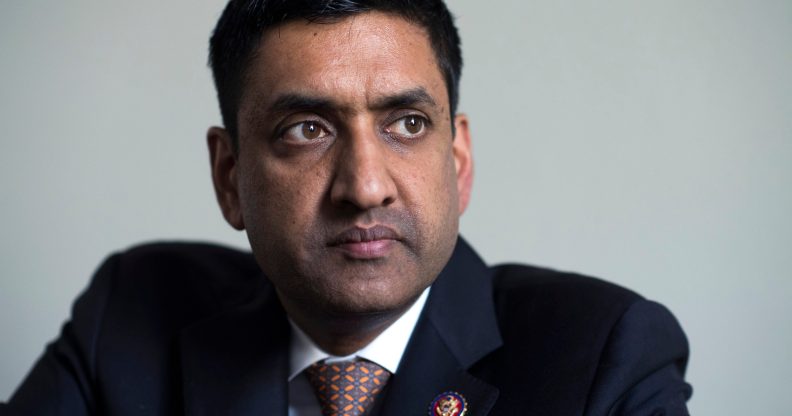A third gender option could soon be available on all US passports

Representative Ro Khanna. (Tom Williams/CQ Roll Call)
US citizens who do not identify as male or female may finally be able to have a third gender option on their passports under legislation introduced on Tuesday, February 25.
The bill, introduced by democratic California representative Ro Khanna, would allow intersex and non-binary Americans to mark their gender as “unspecified”, with an “X” in place of the current “M” or “F” gender markers.
It would be available for all US passports, passport cards and Consular Reports of Birth Abroad.
Khanna based the bill on legislation introduced in New Hampshire last year by trans lawmaker Gerri Cannon, allowing people in the state to choose a third gender option on their drivers licenses and state identification documents.
Currently, 11 states offer a third gender option on drivers licenses and seven allow it on birth certificates, but Khanna’s bill would allow every US citizen to have identification with their correct gender, even if their state does not issue IDs with a third gender option.
The bill also has a “self-attestation standard”, meaning that a doctor’s note would not be required to change the gender marker.
Khanna said in a statement: “Respecting every American’s gender must extend to travel abroad.
“The freedom to move and express yourself no matter what should be guaranteed in this country… Everyone in this country should have the freedom to express their preferred gender on passports.”
If a trans or non-binary person has a gender marker on their identification that does not align with their gender expression, it can put them at risk of discrimination, harrassment and even violence.
David Stacy, government affairs director for Human Rights Campaign, said: “The ability to obtain accurate identity documents is imperative to the safety and wellbeing of LGBTQ people, and we thank Rep. Khanna for advancing this issue.
“Many members of the LGBTQ community identify as non-binary, and non-binary individuals deserve to have their gender acknowledged and accurately reflected on vital government documents like passports.
“Non-binary people already face disproportionately high rates of discrimination, harassment, and violence, and this risk of harm is significantly exacerbated when forced to present incongruent legal documents that do not accurately reflect who they are.”
Although it is likely that the bill will be shot down by Republican lawmakers or vetoed by Trump, its introduction is a step forward in recognising the need for passports that accurately reflect the gender of non-binary and intersex people.

